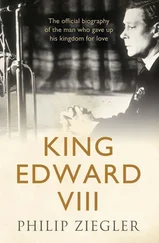13. THE PLAGUE IN A MEDIEVAL VILLAGE
STATISTICS alone cannot provide an adequate picture of the Black Death. That 48.6 per cent of the beneficed clergy in a given diocese died between April and September 1349 is an imposing but somewhat flavourless concept which, in itself, gives no very vivid impression of the sufferings of the people. That a quarter, a third or even half the population died as well is more striking, but the figures still convey no proper idea of what so brutal a depopulation meant to those who survived. In every country the great majority of those who lived and those who died were village dwellers, dependent on agriculture for their existence.
The academic historian rightly distrusts, even if he does not despise, the work of imaginative reconstruction produced by the historical novelist. A fortiori, there must be excellent reason to justify the introduction into a book of this kind of any detail which lacks some sort of documentary evidence. But if the effect of the Black Death is really to be understood then it must be studied at work in a small village community and some attempt be made to evoke the atmosphere which it created and which it left behind it. Not enough is known about any one village to make this possible, but, by piecing together scraps of authenticated material, it is possible to construct a coherent picture which, in essence, is plausible and valid. Only by such an exercise can one hope to put flesh on the dry statistical bones provided by the records of the period.
The village of Blakwater, then, is imaginary; that is to say it is not to be found on any map and was unknown to the compilers of the Domesday Survey. But in its organization and its composition it is not in the least a work of imagination; on the contrary it is very ordinary, and every feature could be duplicated in many hundreds of similar villages scattered over the face of England. It is perhaps a little richer and better run than most and it has for this reason been endowed with a poorer neighbour, Preston Stautney, which is decidedly worse off than the average village of the county. Together these two villages present a reasonably accurate picture of a rural community of the open or ‘champion’ country in the south of England around the middle of the fourteenth century.
Blakwater, then, was a medium sized village of some thirty families and a total population of about a hundred and fifty. Four of these families belonged to freemen paying rent to the lord of the manor but owing him no feudal service, other villagers were still all bound to the lord and had to do various works on his land in exchange for their cottages and strips of field. It did not seem likely that this would change rapidly since the landlord was William Edendon, Bishop of Winchester, and the Bishop, like most of his colleagues, was decidedly conservative in his attitude towards his tenants. He accepted that the commutation of labour services for money had already gone a long way in the English countryside and that – a point which caused him some distress – it was even to be found on his own estates. But he deplored the process, for social more than economic reasons, and it was well-known that his villeins would be unusually privileged if they were ever allowed to change their status.
The village lay about eight miles south-west of the King’s road between London and Winchester; a broad river of mud in winter and of choking dust in summer. The traffic along this road was as heavy as on any in England, not of horsemen and pedestrians only but also of horse-drawn carriages, some of them, belonging to the families of the great magnates, vast and sumptuously decorated. Needless to say, no such carriage, nor indeed any sort of wheeled vehicle, ever found its way down the meandering footpath which led from the highway to Blakwater. Perhaps more surprisingly, very few of the villagers ventured any distance in the other direction. Not a single inhabitant of Blakwater had been as far as London, let alone to any foreign country. Only half a dozen had reached Winchester; the parson, the steward, the reeve and one or two of the more adventurous villagers. For the rest of the people, it was an expedition to walk even as far as the rickety wooden bridge which spanned the stream of Blakwater barely half a mile from the edge of the village.
They felt no sense of deprivation. The village was closely knit, introverted and, by and large, content with its condition. Certainly it conducted some minor trade with the outside world, exported a little wheat and cattle to the market, imported some cloth and the odd manufactured article. But such trade was conducted by foreigners from Winchester through the intermediacy of the reeve or steward; so far as the other villagers were concerned it seemed to have little or no relevance to their daily life. What happened in the next village, let alone the next county, was a matter, if not of complete indifference, at least of minor and academic importance. It was entertaining to listen to the tales of travellers in the same spirit as, today, one might crowd to hear the words of an astronaut; but only the romantic or the reckless actually want to go to the moon and the inhabitant of Blakwater was no more likely to want to go to London or to Calais.
Beyond Blakwater the track became even worse, winding circuitously over the hill to the little village of Preston Stautney some four miles away. It was inevitable that there should be a certain amount of intercourse between the two communities. The young people met in the woods to play games or to poach the lord’s deer, sometimes they carried their games a little further and two or three of the families were linked by marriage. But on the whole the two villages kept themselves to themselves. There was no bad blood between them but the Blakwater folk tended to think themselves considerably better than their neighbours. For Preston Stautney was poor and small. Its land was nowhere near as fertile but this alone was not enough to explain the contrast. Twenty years before, indeed, it had been by no means so marked. But Sir Peter Stautney, the lord of the manor, was something of a wastrel. He liked to spend his time as a soldier on the Continent when he should have been tending his estates at home. Nor was his performance as a soldier likely to win much glory for himself or vicarious satisfaction for his tenants. Once, indeed, he had got himself captured by the French and his steward had had to sell a couple of villages and extract the last possible penny from the others before he could raise the necessary ransom. Discouraged by the lord’s indifference the bailiff had grown slack and was believed to be lining his own pockets at Sir Peter’s expense. The villagers took advantage of his idleness but were none the less resentful of what they felt to be his unfair exactions.
Preston Stautney, in short, was an unhappy village. It had dwindled to some fifteen families, a little over sixty inhabitants in all, and several of those who remained were talking of trying their luck elsewhere. It was, of course, against the law for a villein thus to desert his master but the bailiff would be unlikely to take any very vigorous steps to recapture the fugitive – especially if he had been softened up with a shilling or two in advance – and by the time Sir Peter discovered what had happened the refugee would be far away and beyond discovery. Not that they needed to go very far to be lost to Sir Peter. One of the free tenants at Blakwater was known to be an escaped villein from over the hill. He was a good worker and an honest man and the reeve had no intention of handing him back. Even if Sir Peter found out and complained to the Bishop he would not be likely to get much satisfaction.
For William of Edendon was one of the great magnates of the kingdom, attaching little importance to the protests of a country knight. More to the point, he was a capable and conscientious landlord, always ready to invest some part of his great riches in improving his estates and, though determined to get his due, never harsh or unreasonable in his exactions. He knew Sir Peter as an inefficient absentee, of interest only in that the chaos of his finances might make it possible to snap up one or two of his manors cheaply at some future date. The Bishop had put in the present steward some three years before, paid him well – fifty shillings a year, clothing, stabling for his horse, the use of part of the manor house and a peck of oats each day for his horse – and expected good service in return. The steward was responsible for seven manors in all but Blakwater was one of the largest and the most central and it was there that he had made his home. He came from somewhere the other side of Winchester, for the Bishop believed in putting foreigners in positions of authority on his manors, but he had been accepted by the villagers, if not as one of them, then at least as the next best thing.
Читать дальше












